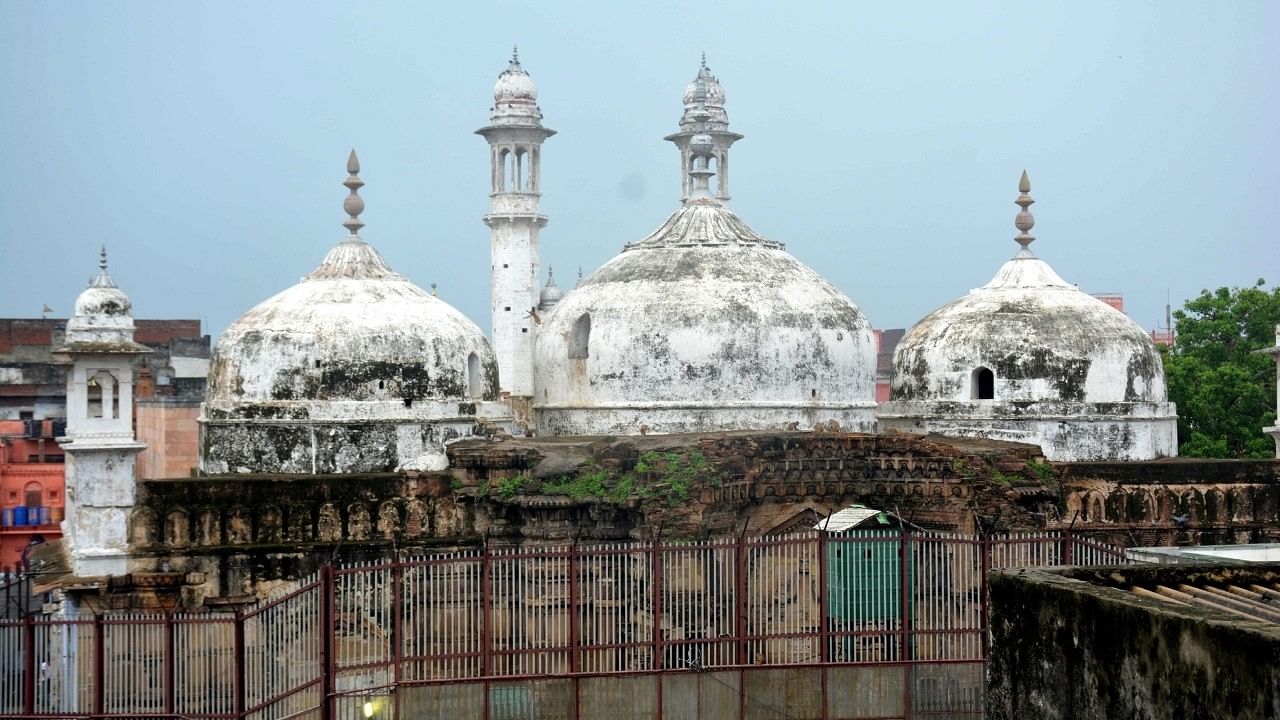
Gyanvapi mosque in Varanasi.
Credit: PTI File Photo
New Delhi: The Supreme Court on Friday decided to examine a plea of the Anjuman Intezamia Masjid Committee against the December 19, 2023 judgment of Allahabad High Court that dismissed the petitions on maintainability of suits on Gyanvapi mosque at Varanasi, holding those were not barred under the Places of Worship Act.
A bench of Chief Justice of India D Y Chandrachud and Justices J B Pardiwala and Manoj Misra took into record a submission by senior Huzefa Ahmadi for the Masjid Committee that the instant matter can be considered along with other petitions.
Senior advocate C S Vaidyanathan for the Hindu side submitted the court had already rejected one plea related to appointment of a Commission on survey of the premises. Senior advocate Harish Salve and advocate Vishnu Shankar Jain also appeared for the Hindu side.
The matter would require little bit of hearing, Ahmadi said.
The court then ordered to tag the instant matter with all pending pleas.
The petitioner challenged the High Court's order which also found the suits for claiming worshipping rights were maintainable.
It contended the 1991 Act was to foreclose any fresh controversies, but the High Court has taken an interpretation making it possible for such controversies, and communal tensions, to still rise.
The plea claimed the High Court has completely misdirected itself in holding that even for a bar under the 1991 Act, it would require determination as to what was the “religious character” of a place even though admittedly the same is in use by Muslims as a Mosque since prior to August, 1947.
The petitioner also said the HC's judgment also severely failed to note that the reliefs being clothed in clever drafting, having the effect of seeking entry in the Mosque premises, would evidently relate to a dispute, question or other matter relating to the waqf property, and attract the bar on civil courts as contained in Section 85, read with Section 83, of the Waqf Act, 1995.
